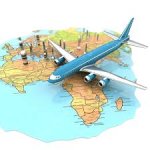The World of Travel and Tourism: Exploring the Globe and Fueling Economies
Introduction
Travel and tourism have always played a vital role in human life. From ancient pilgrimages to modern-day luxury vacations, the desire to explore, learn, and relax away from one's home is a universal experience. In the 21st century, tourism has evolved into one of the largest and fastest-growing industries globally. It encompasses travel for leisure, business, education, and health, offering rich experiences and substantial economic contributions.
This article explores the importance of travel and tourism, its types, benefits, challenges, and the future it holds in an increasingly globalized world.
What is Travel and Tourism?
Travel refers to the movement of people from one place to another for any reason – be it for business, leisure, education, or medical treatment. Tourism is a subset of travel that specifically involves leisure or recreational visits to different places, usually for a short or temporary period.
Together, travel and tourism involve transportation, accommodation, food services, tour guides, cultural experiences, and entertainment – forming an intricate network that contributes significantly to the global economy.
Types of Tourism
1.
This is the most common form where people travel for relaxation, vacation, and personal enjoyment. It includes beach holidays, city tours, nature explorations, and cultural visits.
2.
Professionals often travel for conferences, meetings, trade shows, or corporate events. This type of tourism is short-term and more structured.
3.
This appeals to thrill-seekers who are looking for physically challenging activities like trekking, bungee jumping, scuba diving, and mountain climbing.
4.
Travelers explore historical sites, attend festivals, and learn about different cultures, traditions, languages, and art forms.
5.
With rising awareness about the environment, many prefer traveling in ways that are sustainable and respectful of nature and local communities.
6.
Some individuals travel abroad for medical treatments, surgeries, or wellness therapies that may be more affordable or advanced in other countries.
Importance of Travel and Tourism
1. Economic Growth
Tourism generates trillions of dollars worldwide annually. It supports jobs in airlines, hotels, restaurants, tour companies, transportation, and more. For many developing nations, tourism is a key source of income and foreign exchange.
2. Cultural Exchange
Tourism encourages interaction between people of different backgrounds, promoting understanding, tolerance, and global unity.
3. Infrastructure Development
The need to accommodate tourists often leads to better roads, airports, public transportation, and healthcare services, which benefit local communities too.
4. Environmental Awareness
Eco-tourism and sustainable travel highlight the importance of preserving nature, encouraging conservation efforts in sensitive regions like forests, coral reefs, and heritage sites.
Challenges in the Tourism Industry
Despite its many advantages, the travel and tourism industry faces several challenges:
1. Environmental Impact
Tourism can put stress on local ecosystems. Over-tourism in places like Venice or Mount Everest leads to pollution, resource depletion, and damage to cultural landmarks.
2. Political Instability and Safety
War, terrorism, or political unrest can drastically reduce tourist inflow to certain regions. Similarly, concerns about health (like during the COVID-19 pandemic) can halt tourism entirely.
3. Seasonality
Many tourist destinations are seasonal, which affects income and employment. For example, beach towns may flourish in summer but see a dip in winter.
4. Cultural Erosion
Increased tourism can sometimes lead to the dilution or commercialization of local traditions and lifestyles, as cultures are modified to suit tourist preferences.
The Role of Technology in Tourism
Modern travel has been revolutionized by technology. Smartphones, GPS, online booking platforms, and social media make travel planning easier than ever.
- Travel Apps help with bookings, navigation, and recommendations.
- Virtual Reality Tours let people experience a destination before booking.
- AI-based Chatbots assist with customer service in hotels and airlines.
- Social Media Influence drives interest in new destinations as travelers share their experiences online.
Post-Pandemic Recovery of Tourism
The COVID-19 pandemic hit the tourism industry hard. Borders closed, flights were grounded, and people stayed home. However, as the world adapts to new norms, tourism is making a strong comeback with:
- Contactless check-ins
- Health certifications
- Work-from-anywhere options (leading to “workation” trends)
- Increased focus on hygiene and safety
Governments and tourism boards are now investing in sustainable tourism to rebuild better and more responsibly.
The Future of Travel and Tourism
The future of tourism is likely to be shaped by:
- Sustainability: More eco-conscious travelers and regulations to preserve natural and cultural heritage.
- Personalization: AI and data analytics will offer tailor-made experiences for tourists.
- Space Tourism: With companies like SpaceX and Blue Origin, the next frontier might literally be out of this world.
- Immersive Experiences: Travelers will seek meaningful, off-the-beaten-path adventures instead of traditional sightseeing.
Conclusion
Travel and tourism are much more than vacations or business trips — they are powerful forces that connect people, cultures, and economies. With proper planning and a focus on sustainability, the tourism industry can continue to grow and adapt to future challenges while enriching lives across the globe.
As the world reopens and people begin to travel again, the role of tourism as a builder of peace, economic resilience, and cultural understanding will be more crucial than ever.

